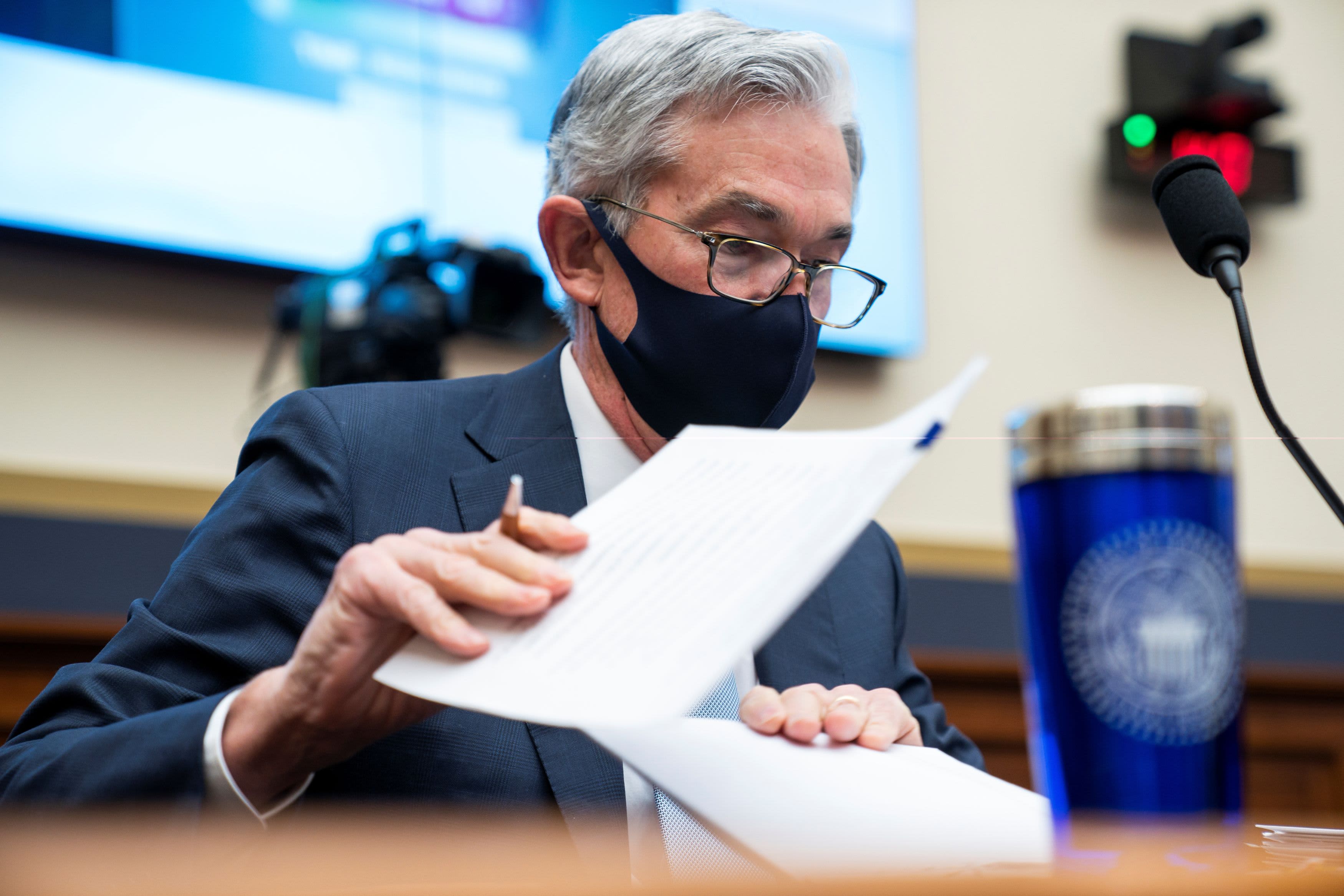Federal Reserve Chair Jerome Powell prepares for a House Financial Services Committee hearing on “Oversight of the Treasury Department’s and Federal Reserve’s Pandemic Response” in the Rayburn House Office Building in Washington, D.C. on Dec. 2, 2020.
Jim Lo Scalzo | Reuters
The Federal Reserve has made a move that cements its nod to the risk that climate change could pose to the financial system.
In a statement released Tuesday, the central bank said it has formally joined a global peer group that is addressing climate’s impact on finance. The Network of Central Banks and Supervisors for Greening the Financial System, as it’s called, was formed in 2017 and now has 83 members from around the world. The U.S. already had been an informal participant for more than a year.
“As we develop our understanding of how best to assess the impact of climate change on the financial system, we look forward to continuing and deepening our discussions with our … colleagues from around the world,” said Federal Reserve Board Chair Jerome H. Powell in a statement.
More from Impact Investing:
Here’s why 401(k) plans lag in green investment options
Biden administration could be impact investing game changer
How to seize climate change investing opportunities
The issue of climate change has become a more pronounced topic at the Fed, in light of the persisting trend of higher average temperatures and environmental shifts such as rising sea levels and more frequent severe weather events.
For instance, in its most recent financial stability report, the Fed explored climate change for the first time, saying, in part, “Federal Reserve supervisors expect banks to have systems in place that appropriately identify, measure, control, and monitor all of their material risks, which for many banks are likely to extend to climate risks.”
The translation is that if those dangers aren’t considered, hazards such as storms, floods, droughts or wildfires could change the value of assets suddenly, causing a shock to the system.
At this point, it’s uncertain how the Fed’s participation in the global network will impact policy and regulation. While Democrats had urged membership, nearly 50 Republican congressional lawmakers last week sent a letter to the Fed requesting that it slow down and avoid following proposals elsewhere that would require banks to consider climate change in stress tests. (Those tests generally are a way for regulators to assess the financial soundness of a bank by requiring them to run what-if scenarios).
The letter also expressed concern that introducing climate-change aspects into those measurements could have a chilling effect on banks’ willingness to extend credit to industries such as coal, oil and gas.
However, the move was applauded by the nonprofit Ceres Accelerator for Sustainable Capital Markets.
“This news … is a clear indication that the agency is acknowledging its role in addressing the systemic risk of climate change,” said Steven Rothstein, managing director of the group, in a statement.
